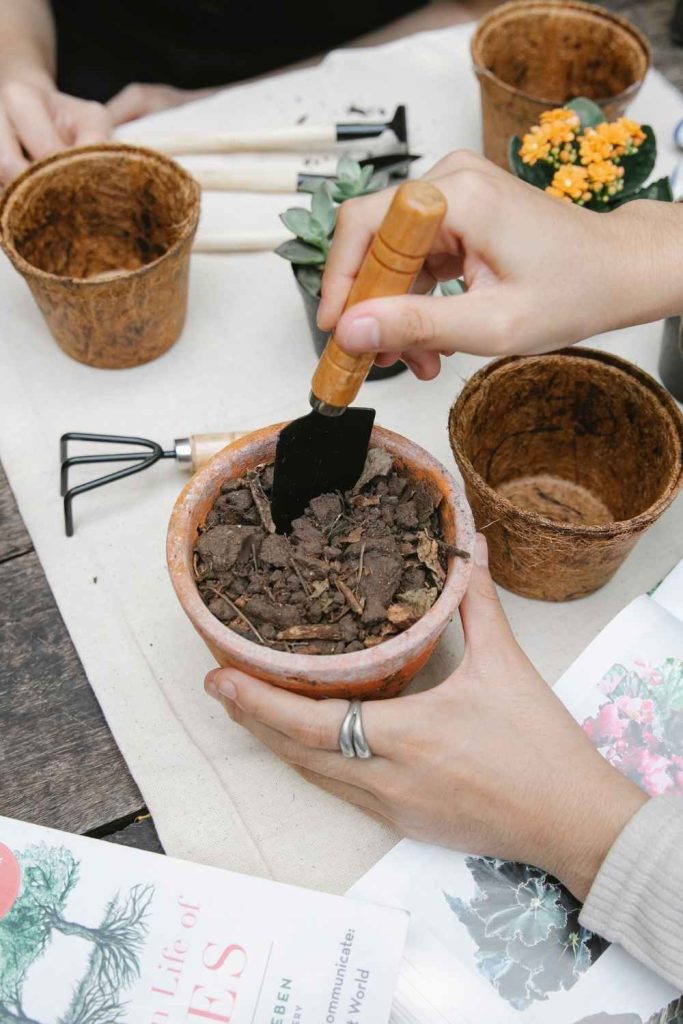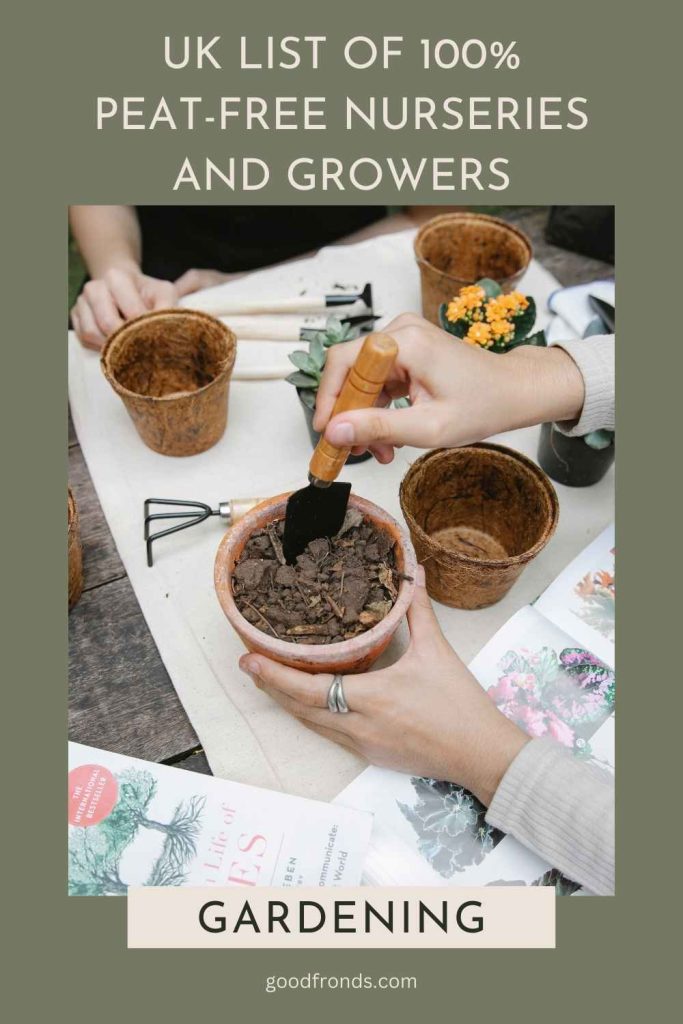As climate conscious gardeners, we have all heard the headlines about peat-free compost by now. The struggle is finding totally peat-free nurseries that you can support. Luckily, The Royal Horticultural Society has surveyed hundreds of nurseries and growers from around the UK to find their peat-free status and movement towards transitioning away from using peat.
Why should we all be switching to peat-free compost? In brief, to protect the planet and prevent climate change from worsening. Peatlands are a type of wetland vital for preventing and mitigating the effects of climate change, preserving biodiversity, reducing flood risk, and providing safe drinking water. Sadly, our often overlooked peatlands are remarkably the largest natural terrestrial carbon store. They store more carbon than all other vegetation types in the world combined.

When damaged peatlands are a major source of greenhouse gas emissions, responsible for almost 5% of global CO2 emissions. So protecting, restoring and not using peat for compost is vital in the fight against climate change.
The RHS survey is the most detailed of its kind and provides a baseline from which to measure the horticultural industry’s progress towards being peat-free, whilst highlighting a list of nurseries and growers that have been verified as being 100% peat-free.
The government has committed to banning the sale of peat to amateur gardeners by the end of 2024, while the use of peat in professional horticulture is set to be banned in 2026, with some exemptions to 2030.
The RHS hopes the list of 100% peat-free growers will enable more gardeners and suppliers to access peat-free plants as well as marking the progress of the industry. The nurseries listed offer a wide range of plant types and are located across the country, with many online options too. In due course, the survey will be repeated and the list updated to reflect the progress of the industry.
“We are really pleased to be able to share and celebrate this list of businesses that are 100% peat-free, and look forward to many more nurseries and growers joining them as they complete their journey to becoming peat-free.
Alistair Griffiths, Director of Science at the Royal Horticultural Society
The survey results show that industry progress is being made, with almost a third of 427 respondents, growing peat-free across all plant ranges, (with the exception of young or plug plants) a further 17% of respondents are now verified as being 100% peat free across all operations. Close to 100 further growers were found to be at least 80% free, including some of the largest businesses in the horticulture industry.
The use of peat in horticulture has severe environmental consequences, as peatland habitats store twice as much carbon as all the world’s forests combined and can store it for thousands of years. Extraction of peat not only releases carbon into the atmosphere, exacerbating climate change, but also destroys important and unique habitats for wildlife and disrupts hydrological services that help to prevent flooding.
At Bluebell Cottage Gardens and Nursery, one of the nurseries on the 100% peat-free list, it has taken some experimentation to get the right peat-free mixes for the range of flowering perennials they grow, but owner Sue Beesley felt strongly that the destruction of peatlands could not be justified to produce their plants. Sue highlights the work still to be done around misconceptions about growing peat-free and the need to ensure peat is not the cheapest growing media, both of which would help the industry embrace the move away from peat.
In 2022 the RHS co-funded a research fellowship to accelerate the transition to peat-free with Defra and industry, leading research to help the horticultural trade and support gardeners to sustainably transition from peat to sustainable growing media. This survey was carried out as part of the fellowship project.

The partnership has three new members in Hillier Nurseries, Lovania Nurseries and Volmary, adding to the original partners. The seven growers taking part in the research produce a combined 143 million plants a year, sold throughout the country in supermarkets and garden centres as well as for use in the landscape and amenity industry.
A key way for home gardeners to help with the transition to peat-free is better home composting, which means gardeners can reduce the amount of bagged compost they buy. To see the full list of peat free nurseries and growers, please visit: www.rhs.org.uk/peatfreenurseries




